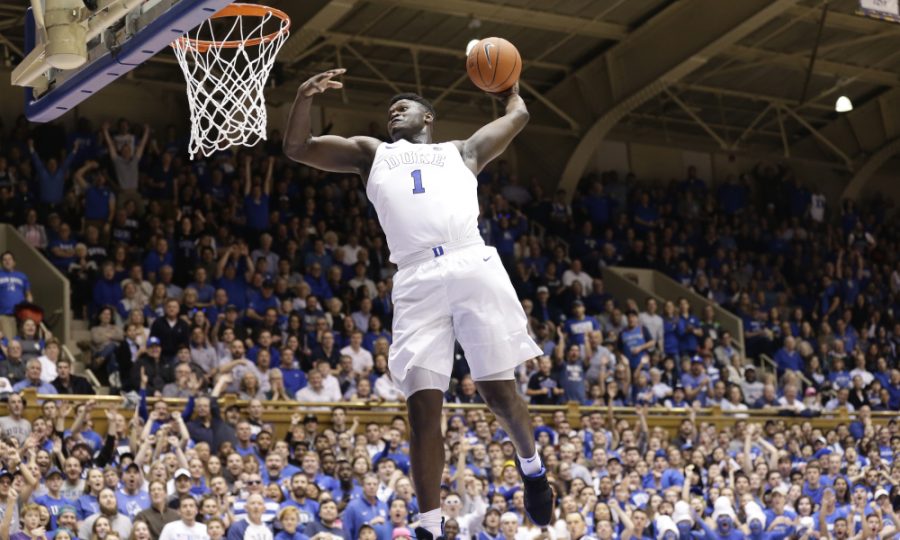Should college athletes be paid?
Weighing the Benefits of Paying College Athletes
May 1, 2019
In 2017 the National College Athletic Association (NCAA) made close to $1.1 billion in total revenue. Now think about the players. They do not receive any rewards for their play and contributing to this large number of $1.1 billion.
This year, Duke, a highly ranked basketball team, has sold out all tickets for the remainder of their home games. Those tickets are bought because people want to watch best players on that team play, such as Zion Williamson. Williamson doesn’t get a penny from all thousands of those tickets, although without him, Duke wouldn’t be selling out of tickets and making the handsome profit that they do. Fans and students buy merchandise and jerseys, but he doesn’t earn anything from that either.
Now, some make the argument that college athletes receive a free education, but is not true that their athletic endeavors essentially exist separately from their education? And if you accept that there is separation between between athletics and sports, shouldn’t they be remunerated for the considerable time and effort they put towards their athletic pursuits?
If you factor in everyday practices, meetings, and other team events such as weightlifting, and games every few days, the athletics become a full time job. Statistics show college athletes put 40 plus hours a week into sports, so how do realistically have time to study?
Studies show that only 2 % of college football players make it to the NFL and 1.2% of college basketball players make it to the NBA. Right or wrong, anyone could make the argument that college athletes focus principally on their athletics in college, thereby under utilizing their free education anyway. Remember, college athletes work full time jobs, with heavy travel required. (Away games).
Imagine you’re a college football player at a big university such as Miami. You work your tail off all week long in practice for 2+ hours in the 90 degree weather, watch hours of film, do conditioning and then go to class everyday. You have two papers due, and an exam on Friday. The biggest game of the season is on Saturday morning.
But, since you can’t work between going to school full time and your full time gig as a college athlete, you have no money. Say you get breakfast and lunch with your school meal plan, but no dinner, so you do not eat. (It is not uncommon for college meal plans to entitle a student to two meals per day). You feel hungry and sick Friday night and Saturday because you have not eaten, which causes you to play badly on Saturday and your team loses.
That is a hard luck story that multiple college athletes have confirmed as a real problem, such as Shabazz Napier, who played basketball at University of Connecticut. He said he “often went to bed hungry.” The same was reported by Bo Wallace, who played Quarterback at Mississippi University. “A Lot of guys go to bed hungry at night. That’s real.”
Perhaps it’s time we pay to play?










